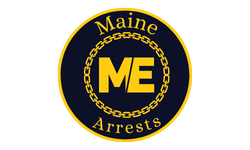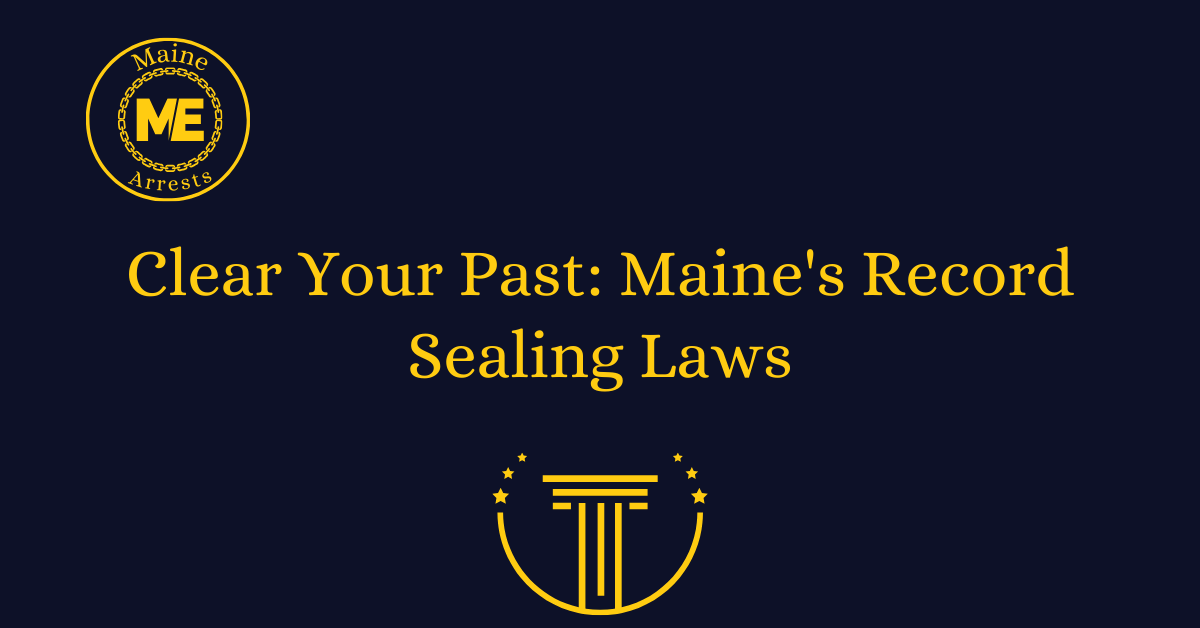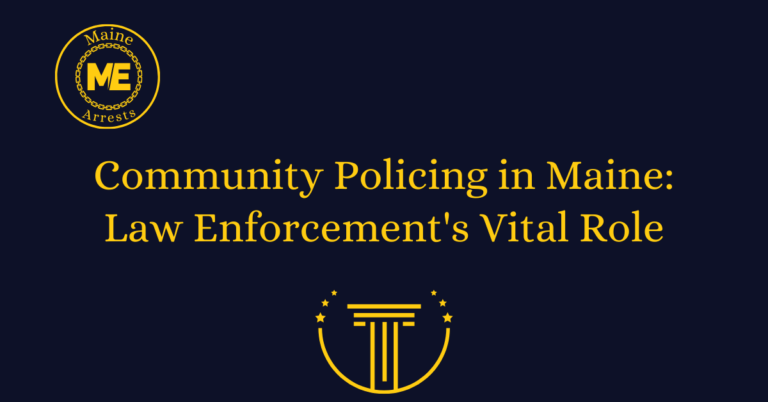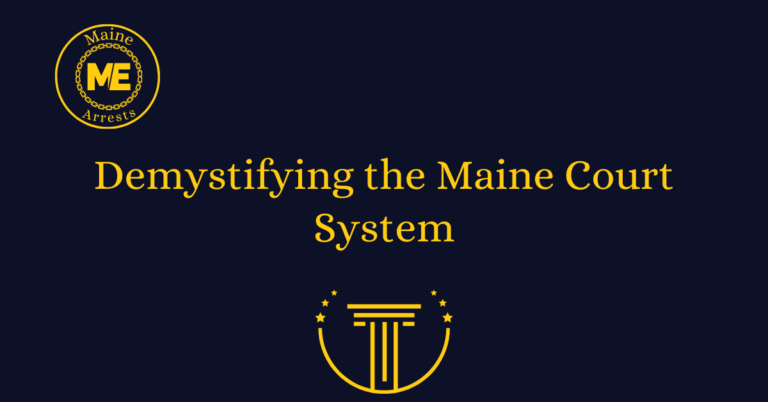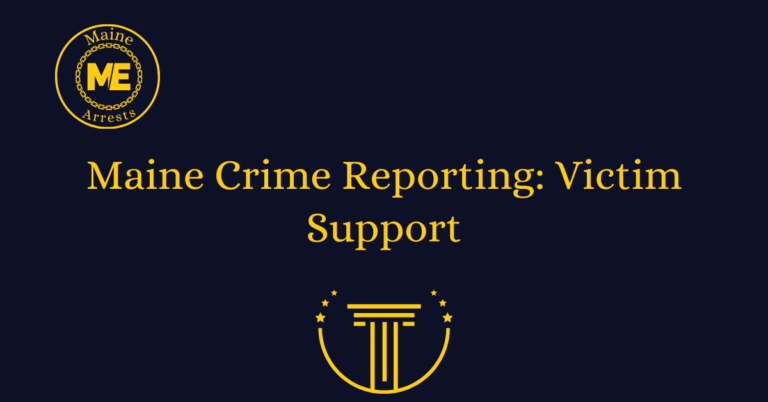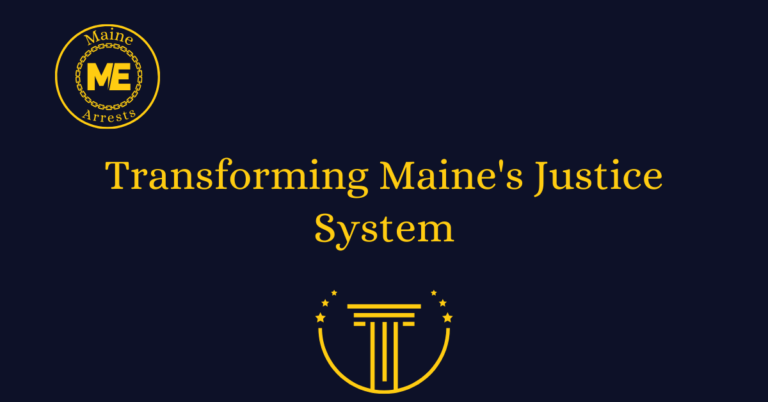Clear Your Past: Maine’s Record Sealing Laws
In today’s digital age, having a criminal record can significantly hinder an individual’s opportunities for employment, housing, and overall well-being. Fortunately, many states, including Maine, have implemented record-sealing laws to help eligible individuals move past their past mistakes and pursue a brighter future. Understanding Maine’s record-sealing laws is crucial for those seeking to clear their past and start anew.
What is Record Sealing?
Record sealing, also known as expungement or record expunction, is the legal process of sealing or hiding a person’s criminal record from public view. While the record still exists, it is no longer accessible to the general public, including potential employers and landlords. This can open up new opportunities for individuals who have made mistakes in the past but are committed to turning their lives around.
Eligibility for Record Sealing in Maine
Maine has specific eligibility criteria that individuals must meet to qualify for record sealing. Generally, individuals may be eligible if:
- They were acquitted of the charges.
- The charges against them were dismissed.
- They completed a deferred disposition or a first-time offender program.
- They were convicted of certain misdemeanours or felonies that are eligible for sealing under Maine law.
It’s essential to consult with a qualified legal professional to determine eligibility and understand the specific requirements for sealing a criminal record in Maine.
Types of Records That Can Be Sealed
Maine’s record-sealing laws cover a wide range of criminal offences, including misdemeanours and certain felonies. However, not all offences are eligible for record sealing. Generally, offences involving violent crimes, sexual offences, and crimes against children are not eligible for sealing.
The Process of Record Sealing in Maine
The process of sealing a criminal record in Maine involves several steps:
- Petition Filing: The individual seeking record sealing must file a petition with the court in the jurisdiction where the conviction occurred.
- Notice to Interested Parties: The petitioner must provide notice to all interested parties, including the prosecutor’s office and any victims involved in the case.
- Court Review: The court will review the petition and consider factors such as the petitioner’s rehabilitation efforts, the nature of the offence, and the impact of sealing the record on public safety.
- Decision: If the court grants the petition, the criminal record will be sealed from public view. However, certain government agencies may still have access to the sealed record for specific purposes, such as law enforcement or licensing.
- Effectiveness: Once a record is sealed, the individual can legally state that they have not been convicted of the sealed offence in most circumstances. However, there may be exceptions, such as when applying for certain professional licenses or government positions.
Benefits of Record Sealing
Record sealing offers numerous benefits to individuals looking to move forward with their lives, including:
- Improved Employment Opportunities: Sealing a criminal record can make it easier to secure employment, as many employers conduct background checks before hiring.
- Access to Housing: Landlords often conduct background checks on prospective tenants. Sealing a criminal record can increase the likelihood of being approved for rental housing.
- Restored Civil Rights: In some cases, sealing a criminal record can restore certain civil rights, such as the right to vote or serve on a jury.
- Peace of Mind: Knowing that past mistakes are no longer a barrier to opportunities can provide individuals with a sense of closure and peace of mind.
FAQs
What are Maine’s record-sealing laws?
Maine’s record-sealing laws allow individuals to have certain criminal records sealed or expunged, making them inaccessible to the general public. This means that these records will not appear during background checks, providing individuals with a fresh start.
Who is eligible to have their records sealed in Maine?
Eligibility for record sealing in Maine depends on various factors such as the type of offence, the time since the offense, and the individual’s behaviour since the conviction. Typically, individuals who have completed their sentence, paid fines, and met all other requirements may be eligible.
Which offences can be sealed in Maine?
Maine allows the sealing of certain misdemeanour and felony offences. However, offences such as sexual offences, domestic violence crimes, and certain violent crimes are generally not eligible for sealing.
How long does the record-sealing process take in Maine?
The record sealing process in Maine can vary in duration depending on several factors, such as the complexity of the case and the court’s caseload. On average, it can take several months to complete the process.
Can sealed records be accessed by anyone?
Sealed records are generally not accessible to the general public. However, certain entities such as law enforcement agencies and licensing boards may still have access to sealed records in specific circumstances.
What are the benefits of record sealing in Maine?
Record sealing in Maine offers several benefits, including increased employment opportunities, improved housing prospects, and the ability to move forward without the stigma of a criminal record. It allows individuals to clear their past and start anew.
